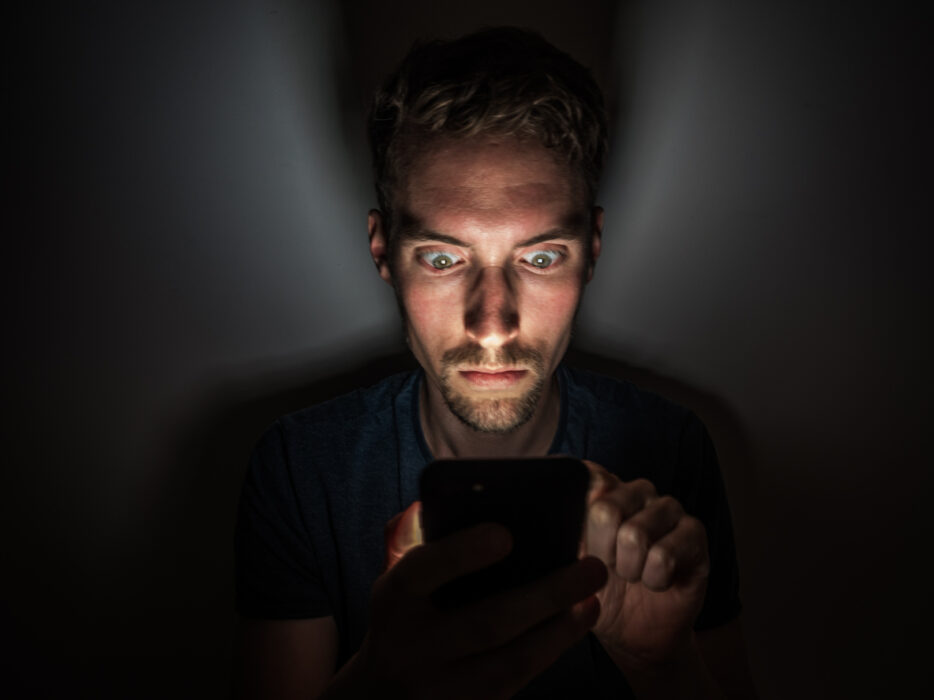Social media is shaping our minds in ways we don’t even notice.

At first glance, a curated social media feed seems harmless—just a collection of aesthetic photos, perfectly edited selfies, and carefully chosen glimpses into other people’s lives. But beneath the glossy perfection, something more insidious is happening.
The pursuit of a flawless online presence is changing the way we think, feel, and interact with the world around us. Comparison culture is driving anxiety, unrealistic beauty standards are warping self-perception, and the dopamine loops of endless scrolling keep us hooked in a cycle we can’t break. We spend hours crafting a digital version of ourselves that’s more appealing than reality, and in the process, we lose touch with what’s real. The mental toll isn’t just personal—it’s societal. As our feeds get more polished, our minds become more chaotic, leaving us constantly chasing an unattainable standard that was never real to begin with.
1. Perfection online takes more effort than anyone admits.

A flawless social media presence doesn’t just happen—it’s a full-time job. Every “candid” shot is staged, every casual outfit carefully chosen, and every seemingly spontaneous moment planned to fit an aesthetic. The result? A pressure cooker of unattainable expectations that leads to stress, burnout, and declining self-worth. For younger generations especially, this pressure starts early. Teenagers see influencers living picture-perfect lives and assume they should be doing the same.
The reality—that these polished moments are often manufactured—gets lost in the algorithm. According to the Child Mind Institute, image-driven platforms like Instagram are associated with increased feelings of anxiety, depression, and body image concerns among young people.
People feel like failures for not living up to an illusion. And yet, instead of rejecting the game, they play along, investing time, money, and energy into curating an identity that feels more important than real life. The emotional cost of keeping up appearances is high, but stepping away feels impossible.
2. Filters are rewriting beauty standards in real life.

Face-smoothing, jawline-sharpening, eye-enlarging filters aren’t just fun effects anymore—they’ve set a new baseline for how people think they should look. The problem isn’t just that these filters exist, but that they’ve become so normalized that many people don’t feel comfortable posting unedited photos at all.
What started as a playful way to enhance selfies has turned into an epidemic of distorted self-image. A 2022 survey by the American Academy of Facial Plastic and Reconstructive Surgery reported that 79% of facial plastic surgeons have patients seeking cosmetic procedures to improve their appearance in selfies, a trend often referred to as “Snapchat dysmorphia.”
Social media apps reinforce these insecurities by prioritizing “flawless” faces in algorithms, making natural appearances seem dull or less appealing. The result is a generation that’s losing touch with what real, unedited faces look like. The more we engage with altered versions of ourselves, the harder it becomes to accept reality.
3. Aesthetic living has turned everyday life into a performance.

Minimalist apartments bathed in neutral tones, perfectly plated meals, and morning routines that seem straight out of a wellness retreat—social media is overflowing with an idealized version of daily life. While these images may seem inspiring, they also set an impossible standard. The pressure to make every moment “Instagrammable” turns simple pleasures into performance, where even relaxation has to be aesthetically pleasing.
As opposed to enjoying life as it comes, people spend their time arranging, editing, and presenting it in a way that fits an online narrative. Messiness—both literal and figurative—is erased from the frame, creating a false idea of what a “good” life looks like. According to the New York Post, trends like TikTok’s “Cleantok,” which promote hyper-cleaning and decluttering, can lead to significant mental and physical stress as individuals strive to meet unrealistic standards.
The mental weight of constantly curating one’s existence leads to decision fatigue, stress, and a nagging sense that nothing is ever quite good enough. When everything must be picture-perfect, nothing ever truly feels real.
4. Social media rewires the brain like a slot machine.

Apps are designed for addiction, tapping into the brain’s dopamine reward system in ways eerily similar to gambling. Each like, comment, and notification triggers a small hit of pleasure, keeping users coming back for more. The problem is, the highs are fleeting, and the lows—feelings of inadequacy, comparison, and anxiety—are lasting.
People find themselves stuck in a loop: post content, seek validation, experience a temporary boost, and then crash when engagement slows. Instead of logging off, they chase the next dopamine hit, whether through endless scrolling or crafting another post to regain attention.
This cycle rewires the brain, making real-world interactions feel dull in comparison. Over time, the need for external validation grows, leaving users more anxious, insecure, and dependent on an app to tell them they matter.
5. No one escapes the comparison trap.

No matter how happy someone is with their life, one scroll through social media can make them feel like they’re falling behind. Someone else has a better relationship, a more exciting career, or a body that seems unattainable.
The constant exposure to curated highlight reels fuels a never-ending cycle of comparison that chips away at confidence and self-esteem. Even when people logically know that social media is a filtered version of reality, it doesn’t stop them from feeling inadequate. The brain doesn’t separate staged perfection from real life—it just registers the gap between “them” and “me.” This comparison trap creates an overwhelming sense of dissatisfaction, making people feel like they need to do more, look better, and achieve faster just to keep up. The irony? The people they’re comparing themselves to are likely feeling the exact same way.
6. Digital validation is replacing real connection.

Likes and comments were supposed to bring people closer, but in reality, they’ve made social interactions more hollow than ever. Digital engagement has replaced deep, meaningful conversations, and friendships are increasingly maintained through passive likes instead of real-life interactions.
Social media users spend time documenting moments rather than fully living them, watching concerts through their phone screens and capturing “memories” to share rather than to cherish. The more social interactions become filtered through screens, the harder it is to maintain real emotional intimacy. This shift is leaving people more isolated, even as they stay constantly “connected.”
7. The pursuit of success is fueling quiet burnout.

Entrepreneurs in their early twenties flaunt six-figure salaries, influencers showcase free luxury vacations, and productivity gurus make it seem like anyone can build an empire if they just wake up at 5 AM. The constant flood of success stories creates the illusion that struggling is abnormal and that success should come easily.
The reality is far less glamorous. Behind every seemingly effortless success story is years of hard work, privilege, or luck—things rarely shown in a curated feed. Yet, for the average person scrolling through, it’s easy to feel like they’re falling behind. This illusion of effortless achievement fosters imposter syndrome, burnout, and a culture where people feel like they’re never doing enough.
8. Algorithms are shaping what people value most.

People assume they have full control over what appears on their feeds, but in reality, the algorithm has the final say. It isn’t designed to serve up balanced or diverse perspectives—it prioritizes engagement, pushing the most provocative, extreme, or visually striking content to the top. This system rewards unrealistic beauty standards, wealth fantasies, and sensationalized drama while suppressing nuanced, thoughtful conversations that don’t generate immediate reactions.
Over time, this constant exposure reshapes interests and behaviors without users even realizing it. People begin to gravitate toward what garners the most likes, shares, and comments, often mistaking popularity for personal passion. Validation becomes less about fulfillment and more about visibility, reinforcing a cycle where engagement dictates worth. As users increasingly rely on social media for entertainment, news, and even self-identity, it becomes harder to separate genuine interests from algorithmic influence, leaving many trapped in a curated version of reality.
9. Privacy is being traded for online attention.

Oversharing is the norm, with people broadcasting personal milestones, family moments, and relationships for mass consumption. Children’s lives are documented before they can consent, while adults post their struggles, emotions, and locations for validation.
Meanwhile, platforms harvest and monetize every interaction. Each like, share, and comment feeds a data system that tracks behavior, purchases, and preferences. Privacy is no longer the default—it’s a luxury few truly have. The trade-off for constant connection is a loss of control over one’s digital footprint, where personal details become commodities. In the race for engagement, the boundaries between public and private life continue to blur.
10. People want to disconnect, but breaking free isn’t easy.

Even those who recognize social media’s harmful effects struggle to leave. These platforms are ingrained in professional networks, friendships, and daily routines, making quitting feel impractical. Digital detoxes offer short-lived relief, but most users find themselves pulled back in.
The fear of missing out, professional obligations, and social expectations keep engagement levels high, even among those who feel drained. While many people are exhausted by the pressures of online life, the ability to fully unplug remains out of reach—trapped in a system that profits off their inability to log off.